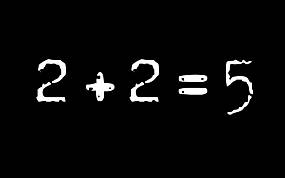I keep wondering why the American Church seems to be having little or no impact on this nation. It doesn’t take a genius to realize that evangelism ain’t what it used to be. I’ve said before that in my younger days I was routinely approached by people trying to share Jesus with me, but that hasn’t happened in a long time.
Speaking of a long time ago, Cerulean Sanctum turns 10 this year, and back in the early days I wrote a post called “Whatever Happened to Sin?” The important line in that post stated the obvious: “In short, it used to be about sin.”
It used to be.
The Church’s main talking point was sin. Sin used to be obvious. We knew what sin was. And we knew who the sinners were.
Today, we think we know who the sinners are, but their sins are not always as clear as they once were. Or should I say that they aren’t so easily labeled sin as they once were.
Think about these “sins”:
The pharmaceutical company that releases a batch of tainted drugs that harm people.
The accountant who makes an error in a corporate spreadsheet that causes shareholder losses.
The bus driver who falls asleep, his bus careening off the road, killing a dozen passengers.
The politician who said one stupid thing amid a host of smart ones and derailed his election chances.
The school principal who responds to angry parents by banning a disputed book from a reading list, only to anger other parents.
People can do a million things right, but that one thing done wrong, that decision made in a flash and under pressure, comes back to haunt them. It’s what they fear more than the fires of hell when they go to bed at night.
Christians will argue that people have the wrong priorities. And maybe they do. Maybe the unbeliever SHOULD be more worried about the fires of hell.
But in a daily existence where every last one of us is bombarded by an endless series of choices our forefathers never had to contend with, most people are wary of every little decision they must make. Because we’ve ramped up the consequences of decision-making mistakes to a fever pitch.
I’d hate to be a doctor today. I can’t imagine the minefield most doctors must contend with. Make a tiny mistake—or even the patient perception of a mistake that actually isn’t—and you could be sued to within an inch of your life and lose everything you spent decades working for.
And it doesn’t have to be the doctor. It seems like each of us, no matter what our profession or life goals, is under a ridiculous amount of scrutiny, where even an innocent mistake can derail a lifetime of hard work, where the difference between success and failure may be one word more carefully chosen.
Beyond our own competency issues and the ever-present whip of punishment, what of the unforeseen?
I confess: I was an Enron investor. It wasn’t a lot of money, just $1,500, but I watched it vanish. I’d done all the research too. Even had a couple investment advisers commend the choice of that Houston company.  All the stats about the company looked good. No one realized all the stats were lies foisted on the SEC by the company.
All the stats about the company looked good. No one realized all the stats were lies foisted on the SEC by the company.
Life happens, right? It’s not always in your favor or mine.
But decisions matter, and sociologists are noting an increased fear of decision-making and a subsequent burnout with having to make an endless stream of choices daily. Each of those decisions may offer potential downsides, with the fallout from a mistaken choice not always obvious on the surface.
Sure, Boris Yeltsin wept from all the choices that bombarded him when he and George H.W. Bush visited an American supermarket. And yes, we have to contend with that decision overload every day.
But where is the grace for mistakes when making those decisions?
Also in the distant past of Cerulean Sanctum, I wrote “We Need a Gospel That Speaks to Failure.” More than at any time in history, I think meeting that need is critical.
It’s not that people don’t understand sin. It’s that we’ve conflated sin and mistakes. For the most part, the world at large can’t tell the difference anymore. Worse, we’ve elevated the cost of mistakes and we’ve made them the worse offense.
You make a goof at work that gets you fired and you yell at your kid because of it. The real sin is yelling at your kid, but the consequences of failing to carry the one that led to underestimating a project’s cost that dominoed into your job ouster seem far more oppressive and dire.
Or you chose the wrong major in college and spend the rest of your life in a series of dead-end jobs because of a decision you made at 18, when your head was full of Jell-O and your naiveté on overdrive.
Or you complimented that “nice” woman at work on her fashion sense and she slapped you with a six-figure lawsuit because of it.
Or all that you learned as a kid got turned upside-down by a changing society and you can’t adapt fast enough because none of your coping mechanisms work now that all the rules have changed.
Life is merciless anymore. There is no room for mistakes. Ever.
Can we blame people for thinking that maybe a mistake is worse than a sin? Or that we’ve made the two synonymous? And how can we get back to talking about sin, grace, and where people spend eternity if we can’t get past this issue of simple mistakes that carry nasty, earthly consequences?
We STILL need a gospel that speaks to failure. As far as I see, though, we don’t have one. The American Church continues to deal poorly with failure. Witness how church leaders who goof, whether by actually sinning or just making a simple mistake, often suffer the worst consequences of all and find the grace they heard about constantly now in preciously short supply.
Here’s the thing: What Jesus said about the measure we judge with being the measure we will be judged by extends beyond sin. If we hold every little non-sin mistake against people, that will come back to bite us some day.
I keep wondering if we Christians need to reexamine our theology to work up a new grace that addresses non-sin mistakes. Because, honestly, those mistakes trouble people immensely, and the guy who made the wrong choice of contractor in the heat of the moment and ended up costing his company dearly for that decision still needs grace for his mistake.
And if the Church can’t offer that kind of grace, who will?

 those great Christian people treated them as if they were.
those great Christian people treated them as if they were. I suspect it’s all too common for a person to walk into a typical church on Sunday with that question burning in the heart and leave an hour later with it unresolved—and perhaps even unadressed entirely. That a person can be utterly alone in a church packed with people…well, it happens, doesn’t it?
I suspect it’s all too common for a person to walk into a typical church on Sunday with that question burning in the heart and leave an hour later with it unresolved—and perhaps even unadressed entirely. That a person can be utterly alone in a church packed with people…well, it happens, doesn’t it?